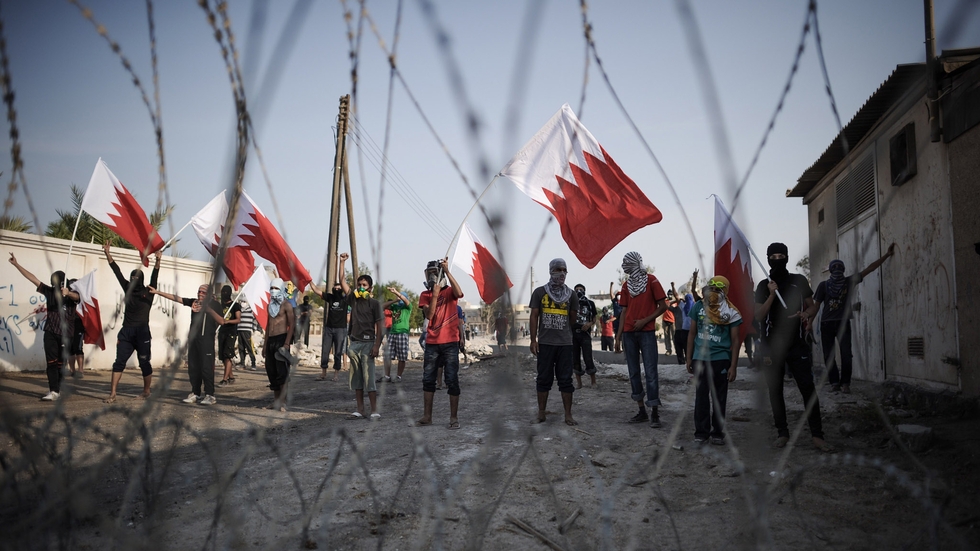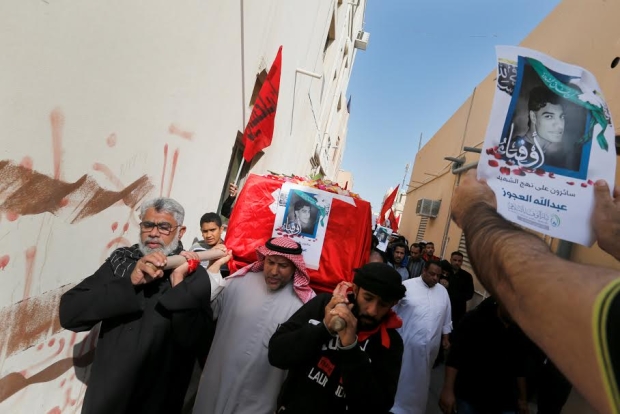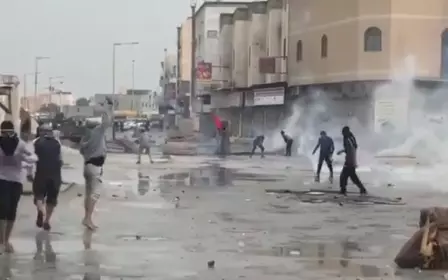Bahrain parliament approves military trials for civilians

Civilians in Bahrain may soon be tried in military courts, in a move condemned by rights groups as bringing in "undeclared martial law".
The lower house of parliament on Tuesday voted to amend the constitution, dropping a clause that restricts military trials to offences committed by members of the army, police or other security branches.
The amendment, which was passed by 31 votes to one, has now been fast-tracked to the royally appointed Shura Council for "urgent consideration".
The amendment would mean that civilians charged with "damaging public interest" or with broadly defined terrorism offences could now face trial in a military court.
Sayed Ahmed Alwadaei, director of advocacy at the Bahrain Institute for Rights and Democracy, said: "Bahrain is creating a state of undeclared martial law.
"If the king approves this amendment, he will officially take Bahrain to a state worse than 2011, and will have declared himself as the most repressive leader on record in the country. This amendment is set to destroy any pretence of rule of law.”
Protest over police killing
The vote follows unrest on Tuesday night as residents of Nuwaidrat village, south of the capital Manama, took to the streets to protest the death of Abdullah al-Ajouz, 22, during a police raid the previous day, witnesses told AFP.
Between 9 and 19 February, police arrested 20 residents of Shia-majority villages, in what the government described as a crackdown on "terror cells".
Those arrested face charges including "plotting acts of terrorism" and aiding and abetting fugitives. Eight of them are also charged with having "received military training on arms and the use of explosives in Iran and Iraq".
Authorities in Bahrain have made sweeping use of counter-terrorism legislation in recent weeks as they tighten their grip on political protests, which have entered their seventh year.
A wave of protests demanding a constitutional monarchy with an elected government began in mid-February 2011, centred around the famed Pearl roundabout, which authorities have since razed.
Sporadic unrest has gripped the country since, and access for foreign journalists remains largely out of the question.
Demonstrations intensified following last week's anniversary of the launch of the 2011 protests, which were crushed the following month with the support of forces from neighbouring Saudi Arabia.
Authorities in the small but strategic archipelago state have accused Shia-controlled Iran of meddling in the domestic affairs of Arab countries in the Gulf. Iran has consistently denied the charge.
Tightening grip
In tightening their grip, authorities have outlawed Bahrain's Shia-majority opposition and handed many of its leaders long jail terms, several on "terrorism" charges.
The main opposition party al-Wefaq lost an appeal this month against a court order dissolving the group, which was found guilty of inciting violence, encouraging protests and "harbouring terrorism".
Al-Wefaq's leader Sheikh Ali Salman has been behind bars since 2014 after being convicted of inciting hatred.
The country's Shia spiritual leader, Sheikh Issa Qassem, was stripped of his citizenship last year for "serving foreign interests", another allusion to Shia-led Iran.
Meanwhile prominent human rights activist Nabil Rajab has been on trial for tweets deemed hostile to Bahrain and Saudi Arabia.
Rajab, who has been denied bail, is also charged with making false accusations against Bahrain, in a series of television interviews in which he criticised the government.
New MEE newsletter: Jerusalem Dispatch
Sign up to get the latest insights and analysis on Israel-Palestine, alongside Turkey Unpacked and other MEE newsletters
Middle East Eye delivers independent and unrivalled coverage and analysis of the Middle East, North Africa and beyond. To learn more about republishing this content and the associated fees, please fill out this form. More about MEE can be found here.





